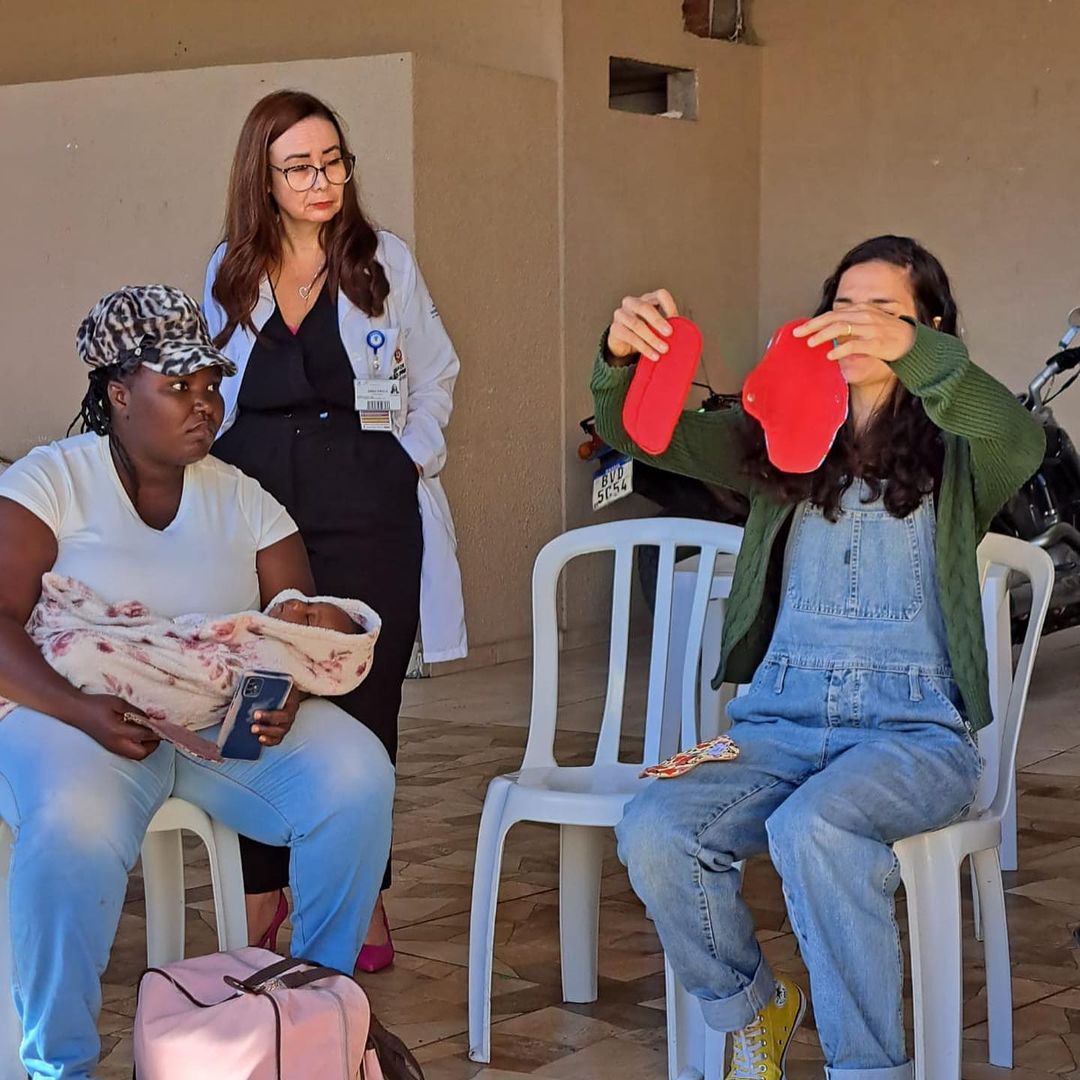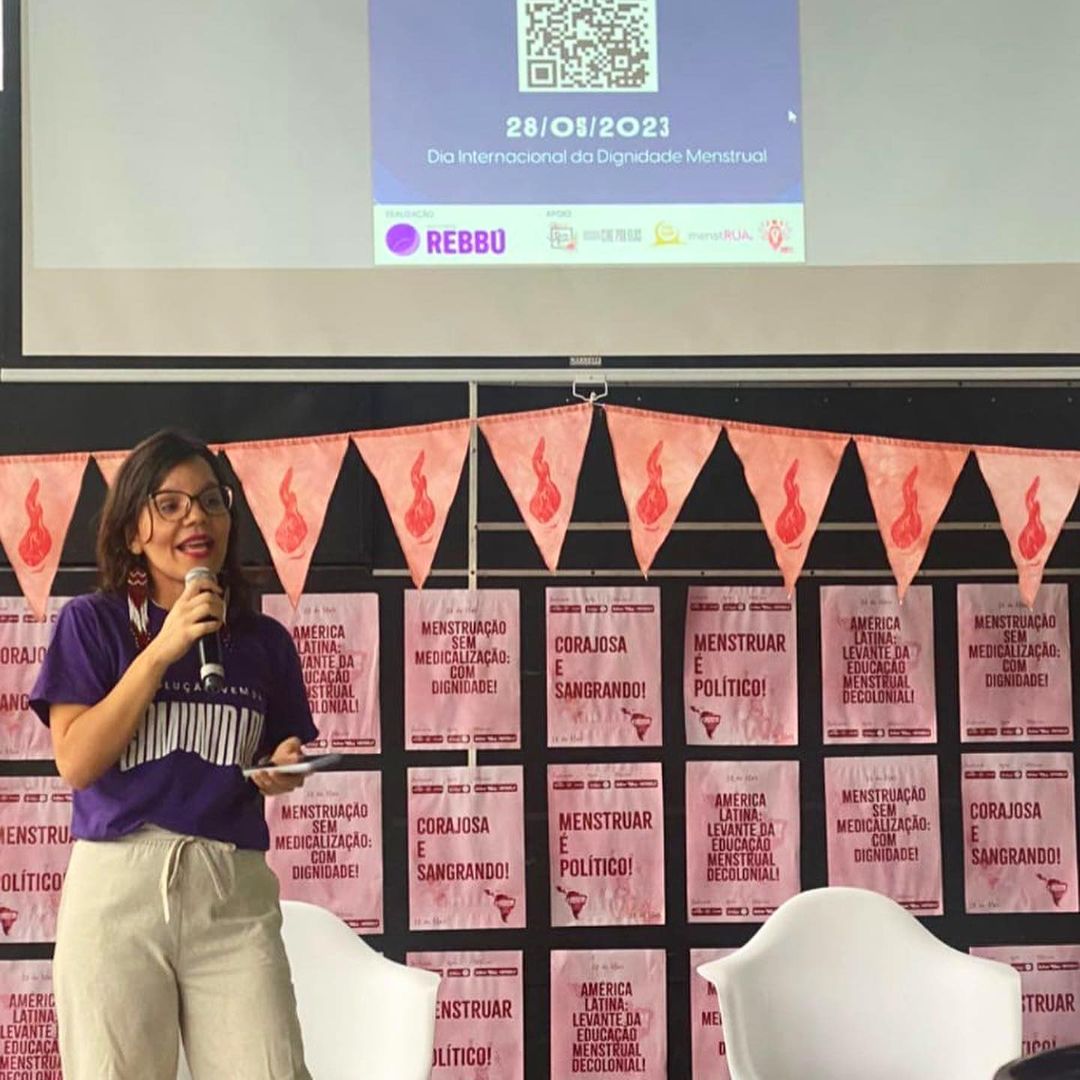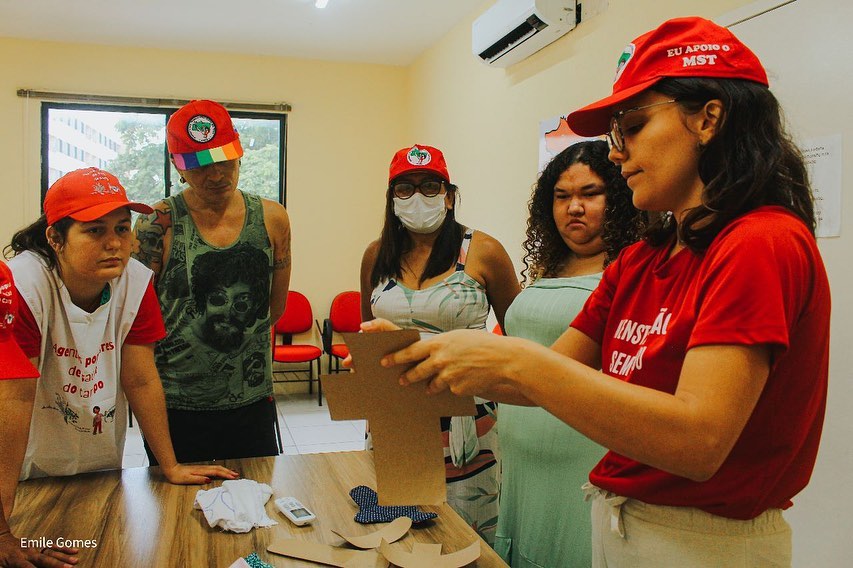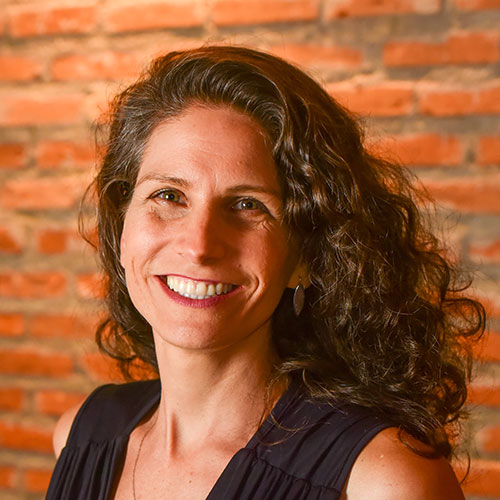Menstruation without taboo: Instituto Rebbú combines menstrual dignity, sustainability and entrepreneurship in Manaus (AM)
Fighting menstrual poverty involves health, access to ecological sanitary pads and community development.


Menstruation is a physiological process linked to the reproductive cycle of people with a uterus that occurs monthly and lasts, on average, 37 and a half years. The way a person who menstruates will experience this process, however, will not always be dignified. Many of them are deprived of their daily activities because they do not have access to adequate hygiene products.
When talking about menstrual dignity, therefore, the first idea that comes to mind is to guarantee the free distribution of disposable pads. If, on the one hand, this solves a social problem, on the other, it increases waste production and environmental degradation. A person who menstruates uses an average of 7,000 disposable pads during their lifetime. Few countries in the world, however, recycle menstrual pads and much of this waste is discarded in landfills or directly into water, polluting rivers and seas.
In Brazil, for example, only 4% of all solid waste produced in the country is recycled, and this does not include absorbent pads. Considering that menstruation affects half of the country’s population, the numbers linked to the disposal of this material are alarming. Thus, faced with the invisibility of the problem and the lack of public policies aimed at women, Juliana Gonçalves and Emile Gomes founded the Rebbú Institute, to combat poverty and gender inequality, in Manaus, Amazonas.

Rebbú Institute and the fight against menstrual poverty
Juliana Gonçalves and Emile Gomes were developing social and environmental impact work in peripheral communities in Manaus when they realized that people were embarrassed to say they needed sanitary pads: “We did a first collection and got 1,500 packages, but we became desperate because the following month We knew they would come back looking for us again… And that’s what happened!”, he remembers.
For Juliana, the excessive number of pads needed to provide menstrual dignity, and being unsustainable from an environmental point of view also limited the scope of distribution. Hence the idea of producing and distributing ecological sanitary pads in the community itself.
In action since 2022, the project has already trained 77 seamstresses and seamstresses. This process is carried out by Instituto Rebbú in partnership with the communities, from workshops to the distribution of absorbents to people in vulnerable situation. Each person receives a kit with three ecological absorbents, a quantity considered sufficient for a moderate flow:
“In general, people tend to use two ecological pads during the day and one at night, so they always need to wash and take turns,” says Juliana. Absorbents have an average durability of three years. The Rebbú Institute’s action was so revolutionary that it was among the three finalists for the Prêmio LED, which encourages innovative projects, promoted by Rede Globo and the Roberto Marinho Foundation.
As a result, the Rebbú Institute expanded its operations and has been forming partnerships in several other states in the country, from the North to the Southeast. “Our mission is to bring knowledge and power of choice to people who menstruate. Let them know the environmental impacts that disposable pads generate, know that there are other possibilities for receiving menstruation and that they can choose”, he states.
Access to ecological absorbents
The disposable pad was created at the end of the 19th century in Germany. Before that, women from different times and regions of the world used to use the traditional cloth, usually made of cotton, to receive menstruation. The aggressive marketing used to promote the disposable pad, however, began to associate the new product with notions of modernity, hygiene and comfort.
According to Juliana, this led to a change in the behaviour of women, who began to view cloth negatively, seen as unhygienic and a product for those who do not have the resources to purchase something better. “Using disposable pads has become a matter of status,” he explains. Even so, she remembers that there are still a large number of people in vulnerable situations who do not even use cloths and end up resorting to old t-shirts, breadcrumbs or lying at home for days to contain their menstrual flow.
However, anyone who thinks that ecological pads are a renewed version of cloths is mistaken. Even though they are made of cotton, it is a new, contemporary product, with a thin and anatomical shape, and the ability to contain intense flows thanks to innovative technology. “The outer layer is made from 100% cotton, which is hypoallergenic and comfortable. On the inside, we use a waterproof fabric to prevent leaks”, explains Juliana.
Ecological absorbents, however, are still little known to the general public. Large disposable product companies continue to invest heavily in advertising, defining consumer culture. The focus is on girls who are going through menarche, that is, who are around 12 years old and who will soon start menstruating. Menstrual education, therefore, is fundamental to point out other possibilities:
“When a girl starts using a disposable pad because she saw an influencer on Tiktok advertising it, it is more difficult to change that behaviour, but that is what we are trying to do. Today, with the environmental issue, modern means preserving, not discarding!”, he argues.


Menstruation without taboo
In addition to environmental pollution, the plastic used in the manufacture of disposable pads can also harm the health of those who use it. There is a lack of research on how the continuous use of disposable pads impacts the body, however, there is already plenty of evidence that plastic affects the health of people and animals.
Studies have indicated, for example, that simply touching a plastic bag for years on end leads to hormonal imbalances, the cause of which goes unnoticed. Furthermore, there is a consensus that plastic muffles and heats the pelvis, increasing the risk of allergies and inflammation in the region.
For Juliana Gonçalves, co-founder of Instituto Rebbú, this demonstrates that the debate on menstrual dignity needs to move forward: “I have never heard a doctor say that disposable pads cause health problems, but at the same time, they say that we need to use cotton panties to not have infections”, he warns.
According to her, the topic has found space in the field of psychology, which treats menstrual poverty from the perspective of mental health; in the legal field, access to which has been discussed based on the tampon tax, which is the tax value on disposable pads; and in the field of sustainability, which has been discussing the impact of plastic on health and the environment.
For a gender policy
The ONU recognized women’s right to menstrual dignity in 2014, highlighting the need for countries to implement national policies to combat menstrual poverty. In Brazil, Federal Law nº. 14,214, of 2021, established the Menstrual Health Protection and Promotion Program. The president at the time, Jair Bolsonaro, however, vetoed all articles that guaranteed the free distribution of sanitary pads, leaving only the article linked to campaign actions.
In the wake of the vetoes, the governor of São Paulo at the time, João Doria, sanctioned State Law no. 17,525, of 2022, which established the Intimate Dignity Program, to promote the health and well-being of students in the state public education network. São Paulo thus became the first state to implement a program to combat menstrual poverty in Brazil.
In March 2023, the topic was debated again at the federal level and current president Lula announced Decree N. 11,432, finally guaranteeing the free distribution of disposable sanitary pads throughout the country, benefiting low-income students, homeless women or inserted into the prison system, among others.
Juliana remembers, however, that the fight against menstrual poverty is not just restricted to the distribution of products: “It is a complex issue that involves basic sanitation, infrastructure, such as access to safe bathrooms, and the right to sexual diversity”, she concludes.


Want to support this cause?
The Rebbú Institute is running a campaign to combat menstrual poverty in the North and Northeast. To contribute, click here!
You can also read and sign the manifesto on combating menstrual poverty here!
For more information, visit the Instituto Rebbú website or follow social media on Instagram and Linkedin.



